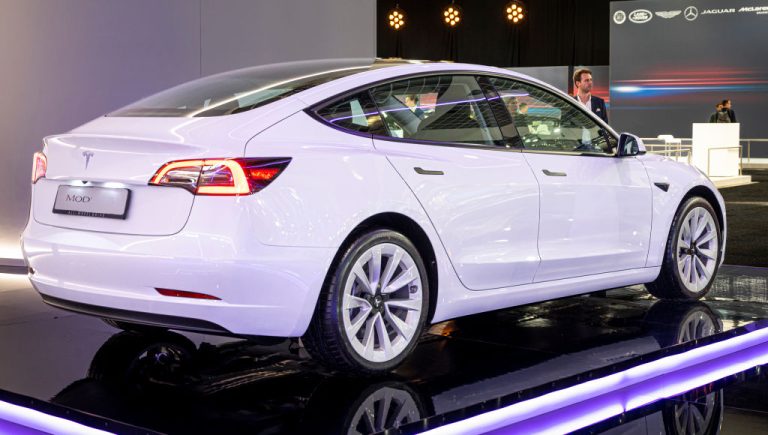Some consumers considering purchasing an electric vehicle can now receive federal tax credits of upwards of $7,500 towards the purchase of one of Tesla’s Model 3s, and if combined with various state level incentives the cost could drop to below $30,000, or a similar price to conventional passenger cars.
Previously, the vehicle was only eligible for a federal tax credit of $3,750, however, Tesla surprised the market on June 2 (Friday) when it confirmed that buyers of its least expensive vehicle now have access to a $7,500 federal tax credit.
The tax credit, which was implemented earlier this year, was once limited because the batteries for the vehicles were sourced in China, but according to Tesla’s online configurator, these restrictions have been eliminated. Tesla has not revealed what changed to allow the cars to qualify.
Currently a base Model 3 retails for $40,240, and after the $7,500 federal tax credit the cost comes down to $32,740. Once this is combined with various state level incentives, a new Model 3 can now be purchased for less than $30,000, before taxes and other fees.
The new pricings apply in the northeastern U.S. states, California, and Colorado, as follows:
Success
You are now signed up for our newsletter
Success
Check your email to complete sign up
California: $28,330
Colorado: $28,330
Connecticut: $29,030
Delaware: $27,820
Maine: $29,320
Massachusetts: $26,830
New York: $28,320
Pennsylvania: $27,330
Rhode Island: $27,820
Vermont: $26,320
This means that in most markets, a new Model 3 is cheaper than a Honda Accord or Toyota Corolla.
The tax credits are not only for older models. Tesla has confirmed that the full tax credit is also available for its newest models, available for delivery now, Electrek reported.
READ MORE:
- Elon Musk Visits China for First Time Since 2019, Received by Foreign Minister Qin
- Ferrari CEO Says Company Will Maintain Internal Combustion Engines as ‘Essential Part of the Company’s Heritage’
- YouTube Pivots, Now Allows Content Alleging 2020 Election Was Rigged
There are restrictions concerning who is eligible for the tax credits.
To qualify, buyers need an adjusted gross income of less than $300,000 for married couples filing jointly, $225,000 for heads of households, or $150,000 for all other filers.
Up until the end of 2022, the IRS offered a tax credit of up to $7,500 for qualifying plug-in vehicles, however it applied a sales cap on manufacturers. Once a manufacturer sold more than 200,000 plug-in vehicles, the incentives were no longer available. Since Tesla only sells plug-in vehicles, it was the first manufacturer to hit the cap. Tesla reached this milestone in the second quarter of 2018.
With the passing of the Inflation Reduction Act, however, the tax credit became available again, albeit with more conditions.
The vehicle has to be assembled in North America, and sedans that cost more than $55,000 do not qualify while other types of vehicles need to cost less than $80,000.
The battery capacity must be at least 7 kWh and they must weigh below 14,000 lbs.
















